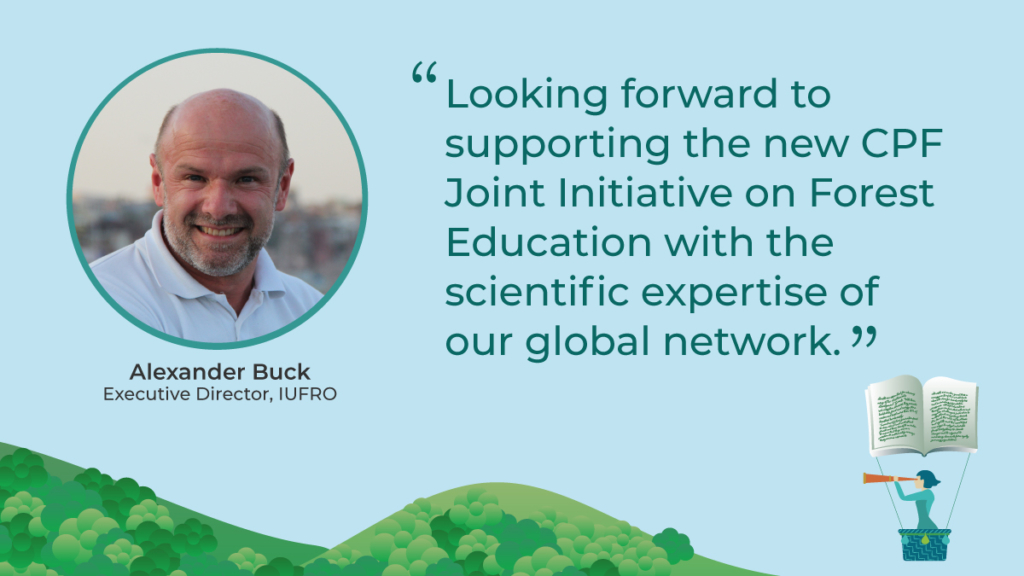"Policy measures exist to enable forests and trees to effectively address poverty goals in Africa, but there is no 'one size fits all' solution."
This is just one of the five key messages highlighted in a policy brief prepared by 20 scientists in consultation with 207 local stakeholders from various groups including national government, international development organization, civil society among others.
Other key messages see forests and trees as vital to poverty alleviation and contributing to the well-being of the poor in Africa as they face profound global changes.
The rest are inequitable distribution of benefits from forests and trees for human well-being in Africa, and cross-sectoral coordination in land use policies to avoid excessive costs by the poor.
International Union of Forest Research Organizations' (IUFRO) GFEP Programme initiated the preparation of Forests, Trees and Poverty Alleviation in Africa: An Expanded Policy Brief in November 2020.
The policy brief draws its information from the global assessment report of the Global Forest Expert Panel (GFEP) on Forests and Poverty with additional complementary research in Africa and stakeholder consultation.
It contributes to the implementation of the 2030 Agenda for Sustainable Development by highlighting the link between SDG 1: No poverty and SDG 15: Life on land, as well as other relevant SDGs.
The expanded policy brief was launched at an online side event of the UN High-Level Political Forum on Sustainable Development (HLPF) 2021 in July 2021.
Poverty continues to be a major challenge in countries across Africa, despite the richness of natural resources,
70% of the world poorest live in Africa and many of them highly rely on forests, trees and the ecosystem services for their livelihoods.
While the resources are neglected, forests and tree-based systems are critical to address poverty.
But IUFRO believes this can only be achieved if policy and management measures enabling forests and trees to alleviate poverty are adapted to each specific context.
The goal of the policy brief is therefore assist government, decision makers to better understand the potential role of forests and trees in poverty alleviation. It will also contribute to sustainable development in Africa.

"It synthesises current scientific evidence and stakeholder input to draw out policy implications and enable identification of “win-win” scenarios as well as potential trade-offs." Authors of the document.
The strategic document is a result of comprehensive review of global scientific literature worldwide, review focusing on Africa and extensive stakeholder consultation across the continent.
"This assessment of forests and poverty in Africa comes at a critical time. The implementation period for both the African Union’s Agenda 2063 and the UN Sustainable Development Goals is well underway." It says.
"The main aim is to end poverty in all of its form and the goal has become even more relevant because of the covid-19 pandemic on the very poor, " IUFRO's Executive Director, Alexander Buck.
Mr. Buck says forest and trees contribute substantially to income and provides and are assets to absorb shocks.
Forests and tree-based systems are critical to to alleviate, and eradicate poverty in Africa.
They are important for the over 245 million people who live within 5 km of a forest across the continent.
IUFRO has about 600 research institutions, universities and organizations across the world and membership of about 20 thousand scientists who carry out objective, scientific and independent assessment on key issues.
Latest Stories
-
Ghanaian youth unaware of their right to hold politicians accountable – Youth Bridge Foundation
29 mins -
Judge delays Trump sentencing for a third time
46 mins -
2024 WAFCON: Ghana drawn against defending champions South Africa in Group C
1 hour -
Photos from DW-JoyNews street debate on ‘galamsey’
2 hours -
Mimmy Yeboah: Blending heritage with global sophistication, confidence redefined through couture
2 hours -
100 Most Influential People Awards 2024: Brain Hill International School’s Director Mary Anane Awuku honoured
3 hours -
Akufo-Addo commissions 97-km Tema-Mpakadan railway line
3 hours -
Majority requests recall of Parliament
3 hours -
Kanzlsperger and Professor Quartey support WAFA with medical Donation
3 hours -
Gideon Boako donates 10 industrial sewing machines to Yamfo Technical Institute
3 hours -
‘Golden Boy’ Abdul Karim Razak honored at WAFU-B general assembly
4 hours -
Buipewura Jinapor secures Vice Presidential position in National House of Chiefs with record votes
4 hours -
2024 election: I want results to come out like ‘milk and honey’ – Toobu
4 hours -
Ghana’s Henry Bukari hands over chairmanship of ECOWAS Brown Card Council of Bureaux
4 hours -
Residents of Dome-Kwabenya on edge ahead of December elections
4 hours

